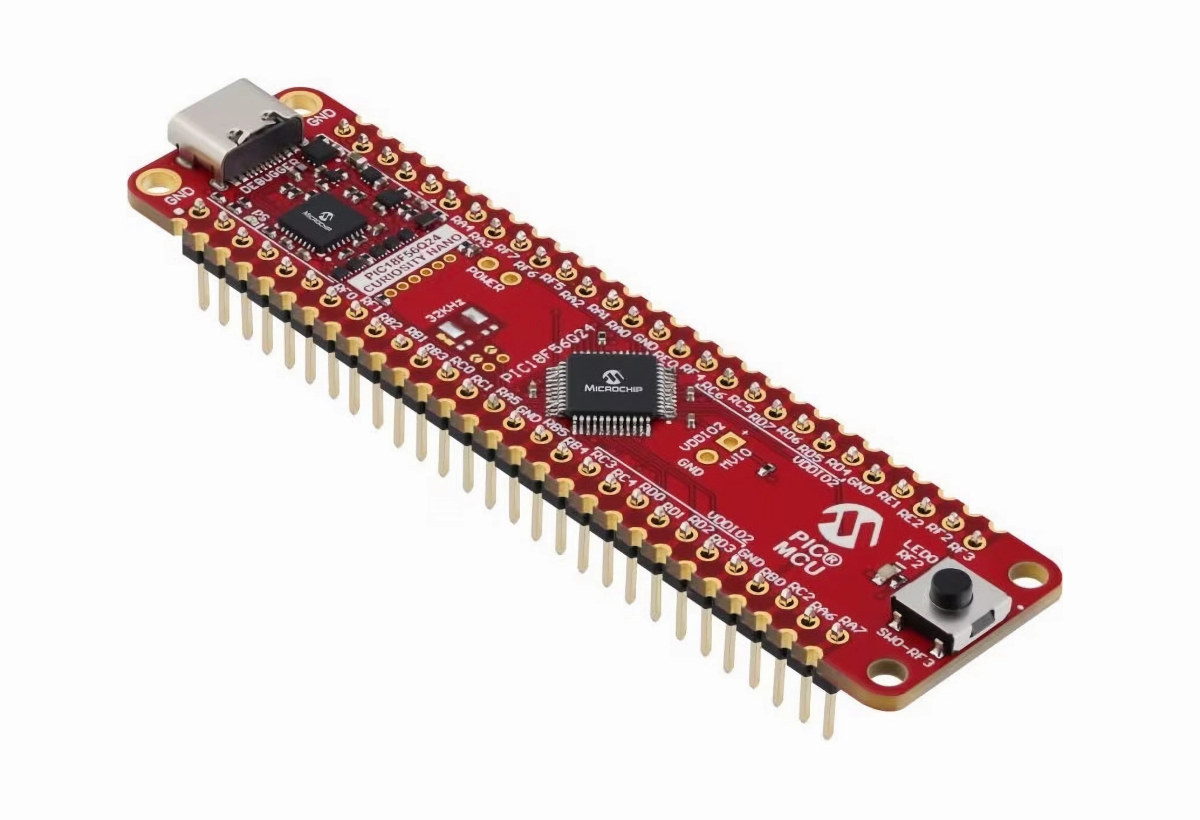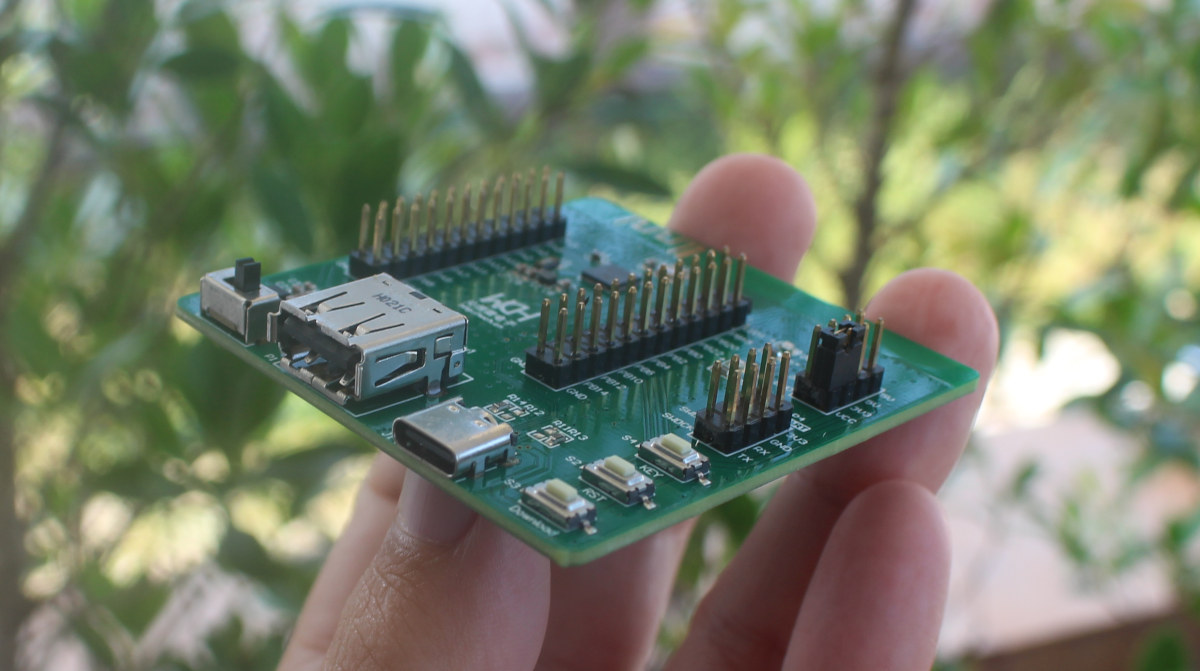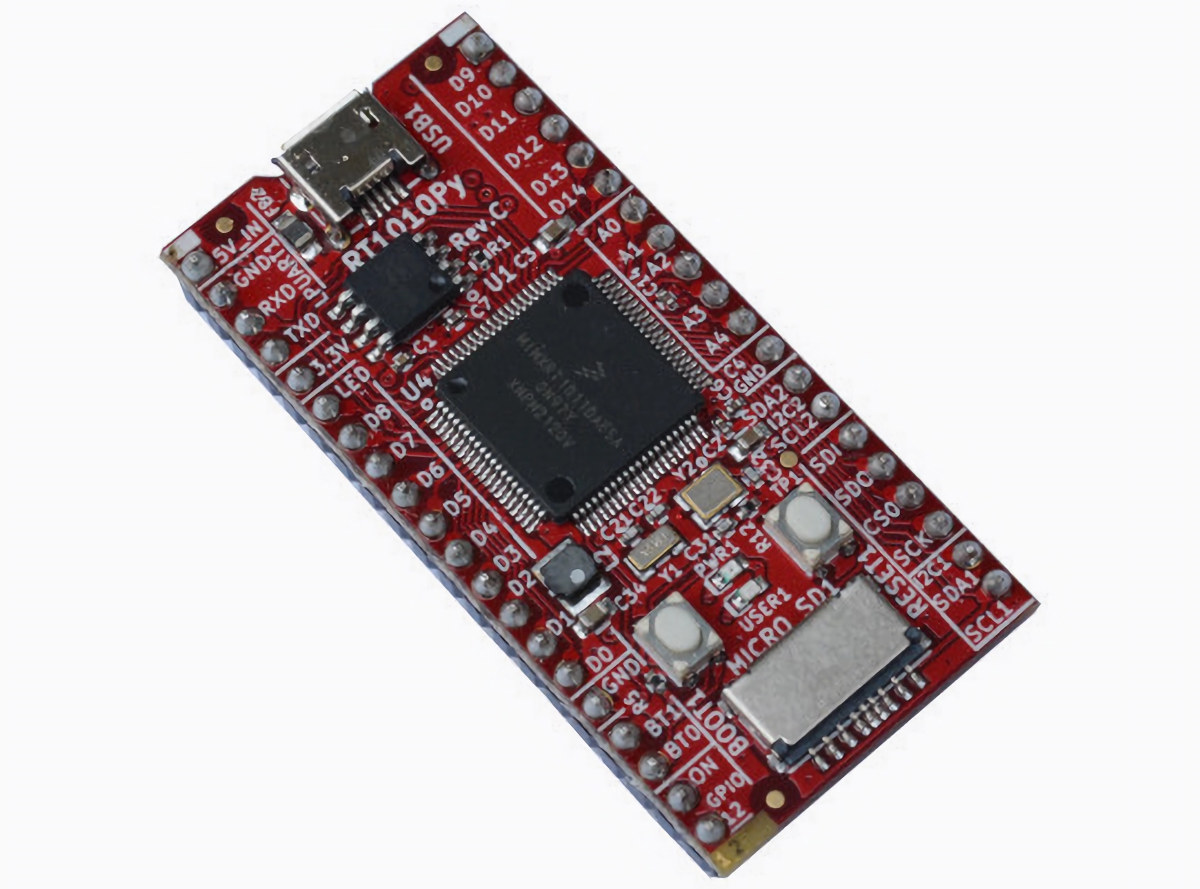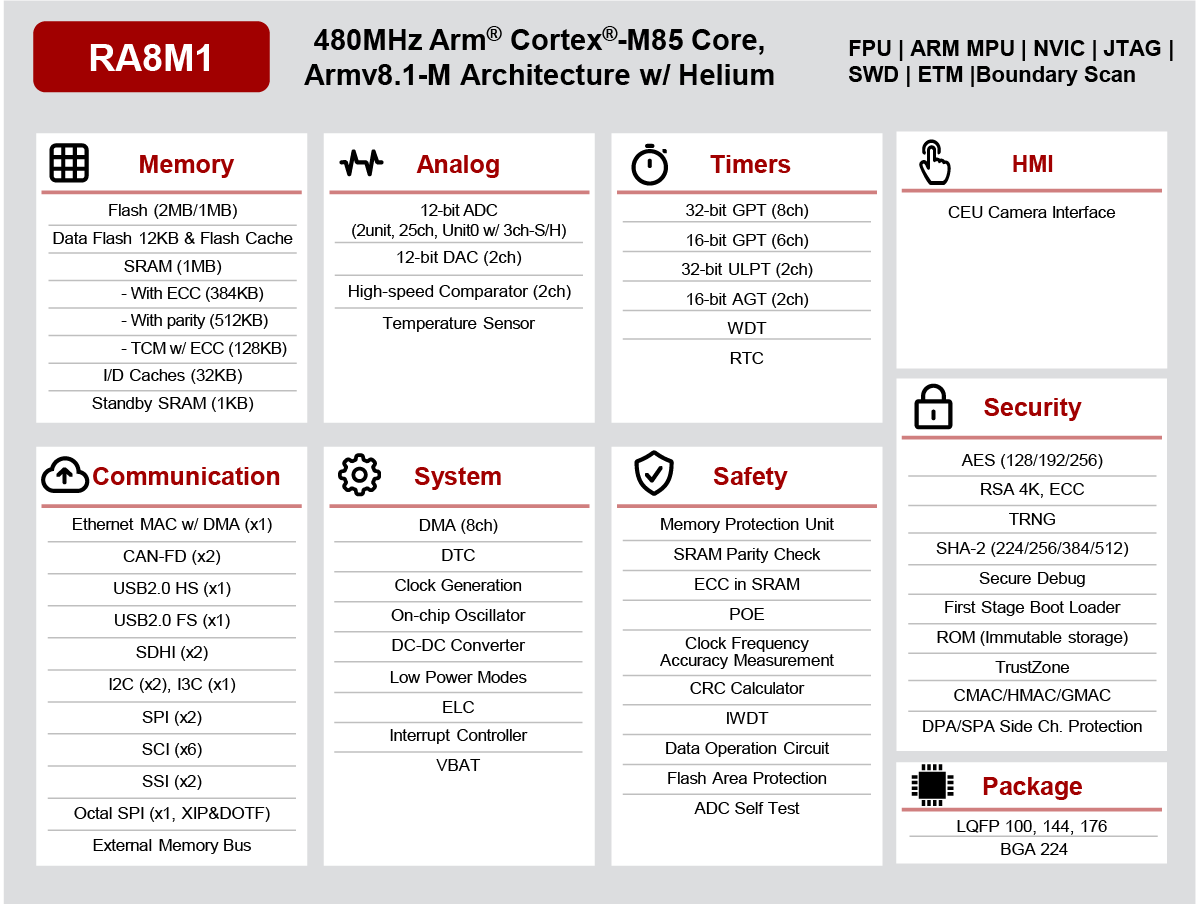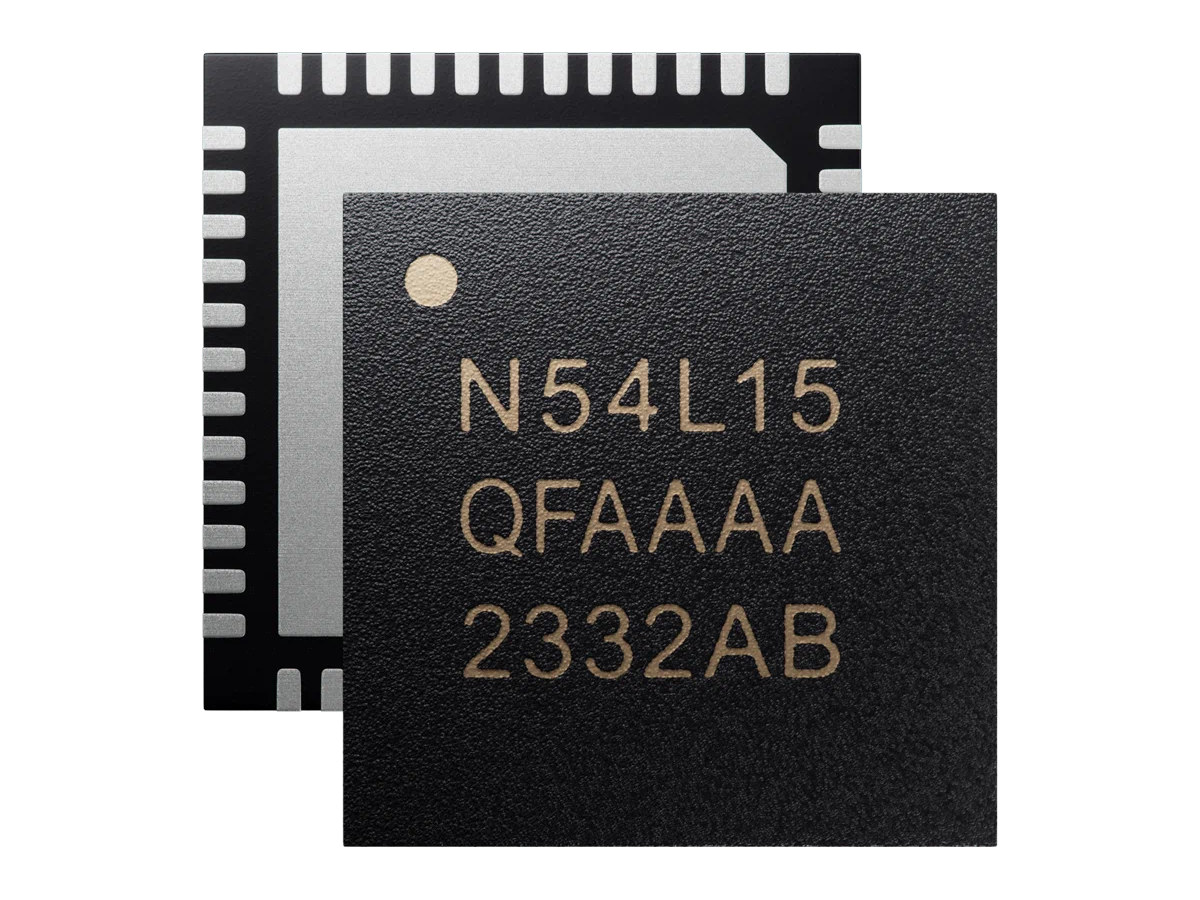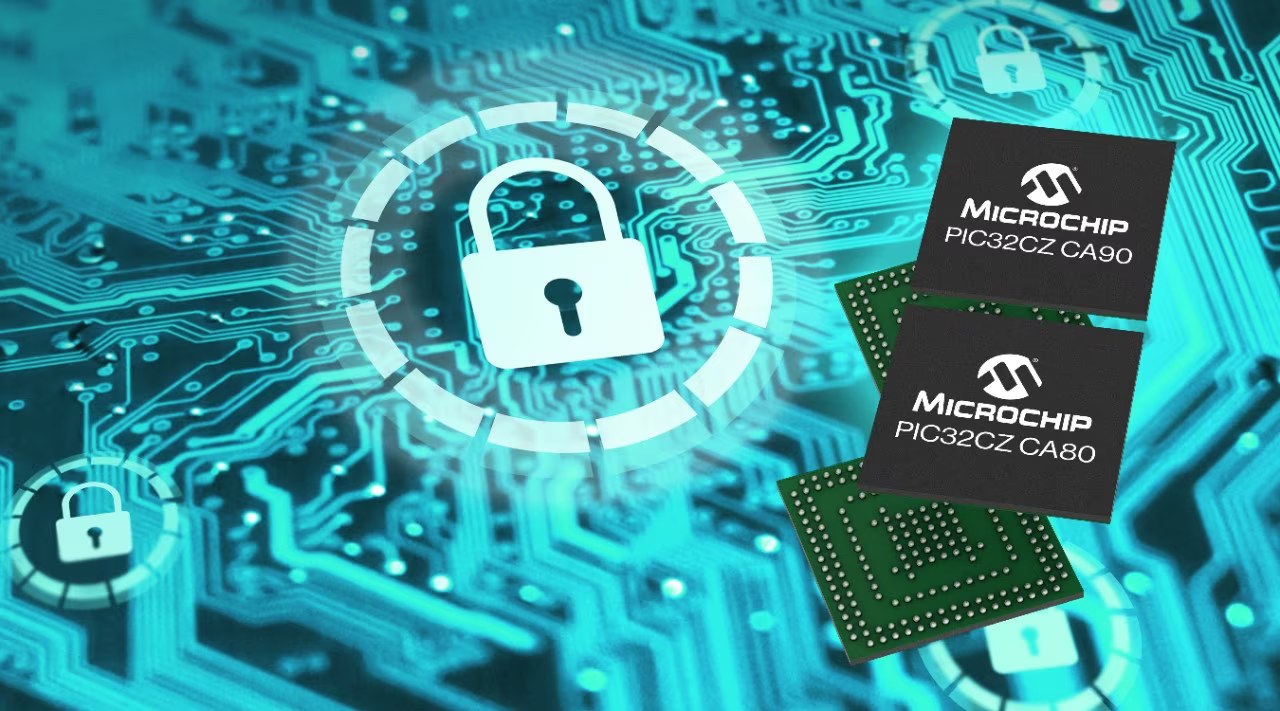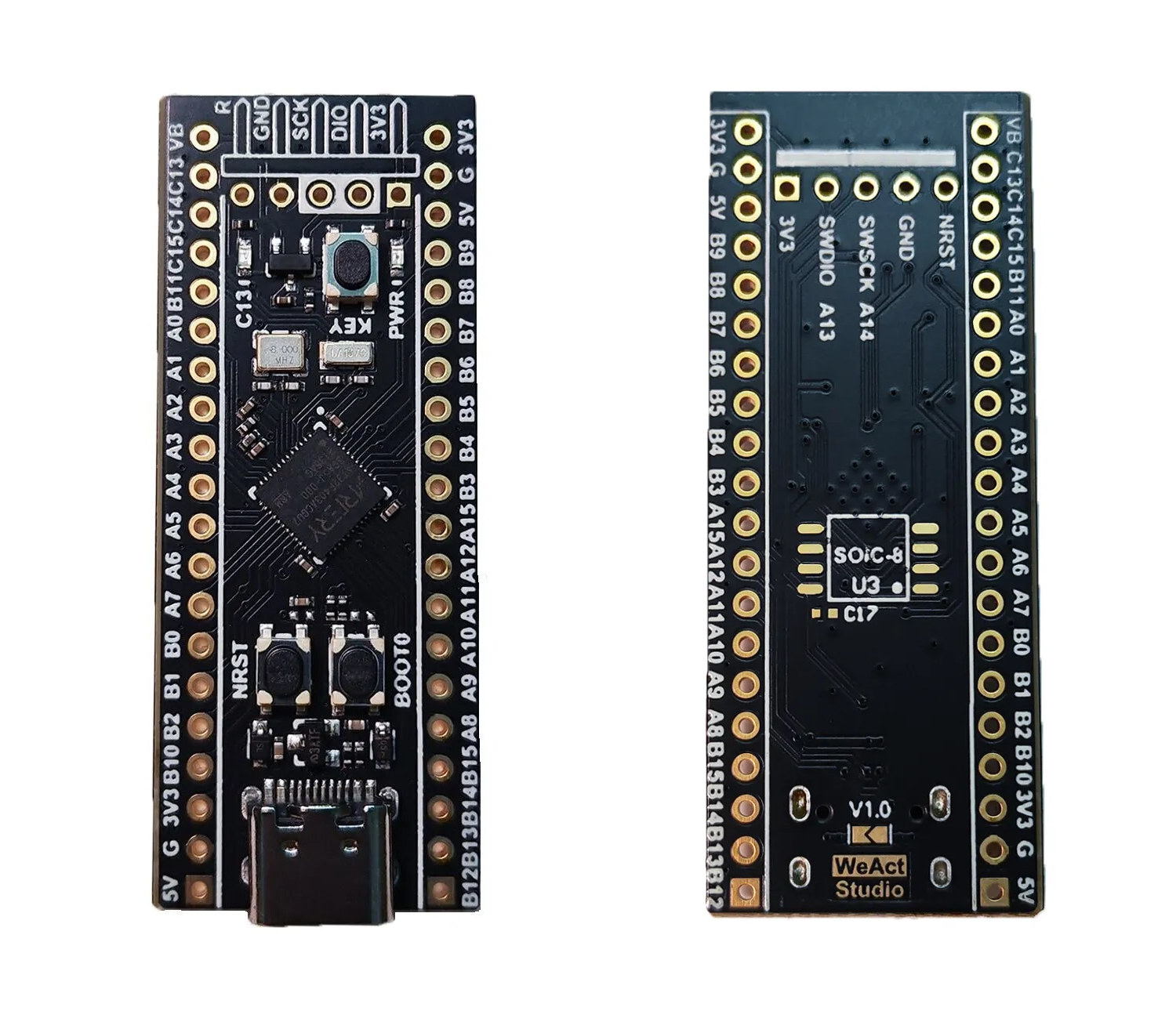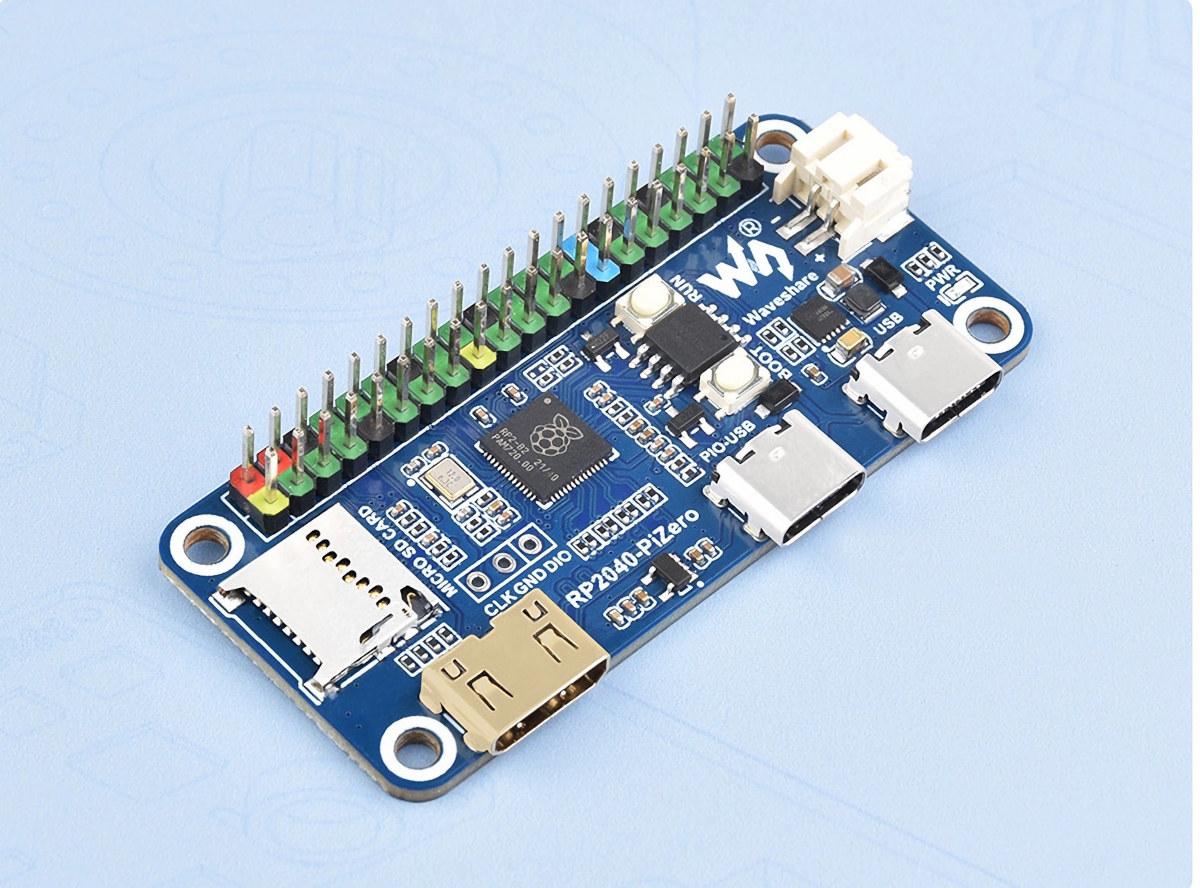The newly introduced Microchip PIC18-Q24 8-bit MCU implements security measures such as the Programming and Debugging Interface Disable (PDID) feature and optional support for an immutable bootloader, as well as support for Multi-Voltage I/O (MVIO) to interface with digital inputs or outputs at different operating voltages without the needs for level shifters. While it’s fun to find a new MCU platform that you can hack via serial, JTAG, or other debug interfaces, it can be a security issue, and the Microchip PIC18-Q24 aims to make that impossible by disabling programming and debugging interfaces and the 8-bit microcontroller also offers an option to make the bootloader impossible to modify once a specific configuration bit has been set. Microchip PIC18-Q24 key features and specifications: MCU core – 8-bit C compiler optimized RISC core @ up to 64 MHz Memory – Up to 4 KB of Data SRAM Memory Storage – Up to […]
Giveaway Week 2023 – WCH CH583M-R0 development board and some RISC-V microcontrollers
Early this year, WCH sent me a few of their RISC-V MCU boards and chips to thank me for writing about their products. I gave one for review with some chips but it went to review heaven, or in other words, no review was ever written. I also sold a couple locally, and since I don’t think I’ll ever have time for a review, we are now giving away the remaining boards and chips here and on CNX Software Thailand. Today’s giveaway is the WCH CH583M-R0-1v1 board, also known as CH583EVT or CH583M-EVT-R0, based on the CH583 RISC-V Bluetooth 5.3 LE microcontroller that exposes all I/Os from the chip, a few buttons, and USB ports, and also features an SWD/UART header for debugging. You’ll find the documentation, code samples, an Android app and other resources to get started on GitHub. I’ll also throw all the remaining chips I have left […]
$15 Olimex RT1010-Py board runs MicroPython on 500 MHz NXP i.MX RT1011 Cortex-M7 MCU
Olimex RT1010-Py is a small development board powered by a 500 MHz NXP i.MX RT1011 Cortex-M7 MCU designed to run MicroPython and about four times faster than the Raspberry Pi Pico. The board comes with two 20-pin GPIO headers exposing various interfaces such as SPI and I2C, a microSD card slot for storage, two buttons, and a USB-C Type port for power and programming. The RT1010-Py also includes a 12-pin fUEXT connector to connect Olimex’s UEXT modules via a flat cable. Olimex RT1010-Py specifications: SoC – NXP iMX RT1011 crossover microcontroller with an Arm Cortex-M7 clocked at 500 MHz and 128KB SRAM/TCM Storage – 2MB SPI Flash, microSD card slot USB – 1x USB 2.0 OTG Type-C port Expansion 2x 20-pin headers with up to 15x GPIO, 3x UART, 2x SPI, 2x I2C, 1x I2S, 4x PWM. 5x analog input fUEXT connector (12-pin flat cable 0.5 mm step connector) with […]
Renesas RA8M1 is the world’s first Arm Cortex-M85 microcontroller
Renesas RA8M1 is an up to 480 MHz Arm Cortex-M85 microcontroller with Arm Helium technology to improve DSP and machine learning performance on Cortex-M microcontrollers, and delivering up to 6.39 CoreMark/MHz performance using EEMBC’s CoreMark, or over 3,000 CoreMark at 480 MHz. The Arm Cortex-M85 core was first unveiled in April 2022 as a faster Cortex-M7 alternative and new Arm Helium technology that delivers machine learning performance similar to Cortex-M55 application processor. We had some teases about the upcoming Renesas Cortex-M85 in the last year, but the world’s first Cortex-M85 microcontroller is finally here. Renesas RA8M1 key features and specifications: MCU core – Arm Cortex-M85 clocked at 240 to 480 MHz with Helium MVE (M-Profile Vector Extension) with 32KB I/D Caches and 12KB Data Flash Memory & Storage 1MB SRAM with TCM 1MB to 2MB Flash memory External memory interfaces (CS/SDRAM) Camera – 16-bit Capture Engine Unit (CEU) interface Communication […]
Nordic nRF54L15 Cortex-M33 wireless MCU halves Rx power consumption over nRF52 chips
Nordic Semiconductor has recently unveiled the 128 MHz nRF54L15 Cortex-M33 multi-protocol wireless microcontroller, the first from the nRF54L Series, and the second from the wider nRF54 family after the more powerful 320 MHz nRF54H20 dual-core Cortex-M33 MCU was introduced last Spring. While the nRF54H20 was designed to enable new types of IoT devices with a leap in performance and lots of resources with up to 2 MB flash and 1MB SRAM, the new nRF54L15 aims to be an upgrade to the nRF52 series with twice the performance and much better power efficiency, with for instance, half the Rx power consumption over its predecessor. Nordic Semi nRF54L15 key features and specifications: CPU Arm Cortex-M33 @ up to 128 MHz with up to 1.5 MB Flash + 256 KB SRAM RISC-V coprocessor for “software-defined peripheral” Wireless Bluetooth 5.4 LE with direction-finding, Bluetooth mesh, etc… Ready for future Bluetooth releases 802.15.4 radio for […]
Microchip PIC32CZ CA 300 MHz Arm Cortex-M7 MCU features a Hardware Security Module (HSM)
Microchip PIC32CZ CA is a new family of Arm Cortex-M7 microcontrollers with the PIC32CZ CA90 integrating a Hardware Security Module (HSM), and the PIC32CZ CA80 doing without one. The HSM in the PIC32CZ CA90 provides advanced security for industrial and consumer applications and operates as a secure subsystem with a separate MCU on board that runs the firmware and security features including hardware secure boot, key storage, cryptographic acceleration, true random number generator, and more. Microchip PIC32CZ CA key features and specifications: MCU core – Arm Cortex-M7 clocked at up to 300 MHz with 16KB ECC-protected instruction and data L1 cache, up to 256Kb of Tightly Coupled Memory (TCM): 128 KB each of ECC-protected Instruction and Data TCM Memory 512KB or 1MB SRAM with ECC, 8KB SRAM for backup mode 2MB, 4MB, or 8MB flash 2x 80KB boot flash memory 16-bit external bus interface (EBI) – Static memory controller for […]
49 cents “Black Pill” board clone features AT32 Cortex-M4F microcontroller
The “Black Pill” board with an STM32F4 Cortex-M4F MCU is already cheap, but I’ve just come across a clone going for just 49 cents plus shipping (34 cents to Thailand) based on a 240 MHz AT32 (or AT32F4) Cortex-M4F microcontroller with Arduino support. [Edit: the price looks like a lottery and everybody seems to get a different price, and not related to VAT. See comments section] Other features are pretty much the same with two 20-pin headers for GPIOs, an SWD header, a USB Type-C port for power and programming, and a few buttons. WeAct “Black Pill” board specifications: Microcontroller – Artery Technology AT32F403ACGU7 Cortex-M4F MCU @ 240MHz with 96 + 128KB RAM, 256KB zero wait-state flash, 768KB non-zero wait-state flash; note: RAM and flash size are somehow configurable by the user, and the numbers listed here are the maximum capacities. Storage – Footprint for SPI flash USB – 1x […]
Waveshare RP2040-PiZero – A Raspberry Pi RP2040 board with Raspberry Pi Zero form factor
Waveshare RP2040-PiZero board is a Raspberry Pi Zero lookalike that features a Raspberry Pi RP2040 microcontroller instead of a Linux-capable application processor. But RP2040 board comes with the same layout as the Raspberry Pi Zero and similar ports including two USB Type-C ports, a mini HDMI/DVI connector, a microSD card slot, and a 40-pin GPIO header, but also adds support for LiPo batteries with a 2-pin connector and a charging circuit. RP2040-PiZero specifications: MCU – Raspberry Pi RP2040 dual-core Cortex M0+ microcontroller @ 133 MHz with 264 kB of embedded SRAM Storage – 16MB SPI flash, microSD card slot Video – Mini HDMI port that can output DVI signals USB – 1x USB Type-C port for data using PIO-USB host/device implementation Expansion – 40-pin color-coded header with 2x SPI, 2x I2C, 2x UART, 4x 12-bit ADC, 16x PWM, 8x Programmable I/O (PIO) state machines for custom peripheral support Misc – […]


